- Home
- Jerry B. Jenkins
Riven Page 12
Riven Read online
Page 12
He honestly didn’t know, but he had a feeling most people would be sympathetic to him if they knew he was protecting an eight-year-old boy. Part of Brady hoped it wouldn’t come to that. Another part of him hoped it would.
He had spent enough time on the machine that he should have been more accurate, but his state of mind caused him to break two car stops. For a few minutes he drove in anger and once had to hit the brake so hard to avoid hitting the metal building that he nearly pitched out of the seat.
Just as he was loading the last pallet under a black sky by the light of the security lamps in the company yard, he heard a noise and jerked to see if it was Peter. It wasn’t, but his action caused the load to shift, and one stop slid halfway off the pallet. It hung there, and Brady could feel the weight pulling on the truck.
He slowly lowered the forks, but it was clear the hanging stop would touch the ground before the flat bottom of the pallet. If he was careful, perhaps it would push itself back into position without breaking. When it was just inches from the ground, he toyed with the levers that controlled the hydraulics, but at the last instant he held one too long, and the hanging stop hit the ground and cracked, held together only by a thin strip of rebar.
He swore. Three broken stops in two hours of work! Alejandro was a good guy and had predicted this learning curve. But with that third break, Brady knew he had actually cost the company money for that shift. He would not be docked, but what would the foreman think?
Alejandro had said such was the price of his training, but with everything else going on in Brady’s life, he suddenly couldn’t abide this. It was embarrassing, humiliating. Worse, what if the former guy’s back got better and Alejandro got tired of waiting for Brady to be productive? Maybe he would get switched to sweeping floors for just pennies or, worse, lose his job.
Brady carefully snagged the broken stop with one fork and slung it out of the way, then grabbed another good one, completed the pallet, and loaded it onto the delivery truck.
He knew the right thing was to move the broken stop onto the pile with the other two so Alejandro would see the true picture in the morning. But forty feet past the delivery truck was a steep drop into a ditch. Did anyone ever look down there?
Brady hopped off the truck and crept to the edge. He squinted in the darkness where it appeared a trickle of water ran through some gravel. Hurrying back, he fired up the machine, grabbed the third stop, and drove it to the edge. He raised the lift and angled the forks so the cracked slab slid off. But he didn’t hear it roll to the bottom.
Furious, Brady scampered off to find that the thing had stuck to the muddy side of the gulley, midway down. Maybe that was good. Someone would have to look hard to see it. But it would be even better if he could cover it. There would be no getting the truck down there without it flipping, so Brady ventured down, quickly ankle deep in the soggy incline. It took him twenty minutes to dig and spread more mud over the block.
As he parked the forklift and went to turn off the lights in the outbuilding, Brady saw how mud-caked he was. His shoes were covered, his pants filthy to the knees. He’d have to leave early the next night and wash them at the Laundromat, but the shoes were another matter. He hosed them down before walking home, squeaking and leaking as he went.
At the trailer he sat on the steps and removed shoes and socks, setting the shoes where the morning sun might dry them before he left for school. He wrung out his socks, making enough noise to rouse his mother. She moved to the doorway and blocked the light.
“So what’d you do, fall in? Thought you were driving a forklift.”
He turned and pushed past her.
“Answer me, you oaf! You too uncoordinated to even stay in a truck?”
There was so much he wanted to say, to do. But if he could just settle into this job, get them comfortable enough with him that he would never be suspected if he raided the office, he would be out of the trailer soon enough.
Nabertowitz was still on his case about his grades, but Brady had an image to protect. What would it look like, him meeting with a teacher, especially more than one, and having a tutor assigned? Some kid, maybe even younger, sitting with him in study hall and working with him?
Like that would happen.
Peebles
“You’re going to be surprised at how this hits me, Thomas,” Grace said, dishing out their meals as if moving in slow motion. “While it doesn’t sound like there’ll be a role for me, at least that I know of—perhaps I can write letters or send in baked goods or something—I can at least pray for you and for the men you’d minister to. But two things about it are really attractive to me. Can you guess?”
He smiled, chewing, and shook his head.
“First, we will be able to find a church to just attend and enjoy. Can you imagine simply drinking in some teaching and not having responsibilities? How I’d love that. Oh, I’m sure we’d both get busy soon enough, teaching Sunday school and whatnot, but we’d just be members. Lord, forgive me, but it sounds delicious. I could organize the ladies to somehow minister to prisoners.”
“You said two things.”
She nodded and sat back, setting down her chopsticks after only two bites. “I did, but I’m feeling a little selfish about it. I believe I’d have more time with you. You wouldn’t be there all hours, would you, like you’ve had to be at the churches?”
Thomas laughed. “We’re feeling guilty together. Nothing sounds better to me. I also like the idea that you can take a break for a while. Whatever’s wrong with you, whether it’s just a bug or something serious, we’ll have time to find out before you have to dive into anything.”
“And that can wait. I feel wasted, I confess. But I don’t think it’s anything dire. Why don’t you pursue this, and if it happens, once you get settled in and we find a place to live, if I still feel I need to, I’ll see a doctor.”
17
Thursday | Forest View High School
Brady Darby’s last class of the day was metal shop in the industrial arts wing, and much as he liked working with his hands, he found himself more distracted there each day, looking forward to rehearsal. Metal shop had been the only class in which he’d been able to maintain higher than a D, but a big test was coming. Unfortunately, it was a book exam, not a project one. If he was only assigned to fashion something, he thought he was as good as anyone in the class. But if he had to come up with the whys and wherefores and melting temperatures and stress calculations, he’d be lost.
Worse, while his instructor was discussing the test, Brady’s mind was elsewhere. Until he saw Mr. Nabertowitz at the door. The drama teacher apologized for the interruption and huddled with the shop instructor. Then both turned and nodded at Brady. Mr. N. motioned for him to come, and Brady quickly gathered his stuff.
“We have a meeting with the dean,” Nabertowitz said as they headed down the hall. “Be on your best behavior.”
“Hosey?” Brady said.
“Dr. Robert Hose to you. And you know what’ll happen if you give him an ounce of attitude.”
“Believe me, I know. Hauled me in for spit wads freshman year. Thought he was gonna expel me. Worse than terrorizing Mr. Peepers—you know who I’m talking about—in study hall was slouching in the chair in Hosey’s office.”
“Yes, no slouching.”
“So, what’d I do now?”
“That’s another question not to ask, at least that way. If you really don’t know, say so, but you know he’ll ask if you know why he wanted to see you. And we both do, don’t we?”
Brady shrugged.
“Well, don’t we?”
“’Course.”
“I’m going to bat for you, Brady. You do your part.”
Dr. Hose was a short, compact man with close-cropped black hair. He did not rise from behind his desk when Brady and Nabertowitz entered, and Brady wondered where a guy bought a three-piece suit he could keep buttoned while sitting without looking like he was going to burst.
The
dean narrowed his eyes at Brady as he pointed to chairs facing his desk. “Still smoking, I smell, huh, Darby?”
“Trying to quit, sir. You were right. You said it would become almost impossible.”
“Almost. I quit, cold turkey, when I got out of the service. You can do it. I suppose you know why I asked to see you.”
“I sure do, sir. My grades.”
“It’s not my practice to allow a teacher in here when I’m delivering bad news, but Nabertowitz thinks you’re worth fighting for. Are you?”
“I’d like to think so.”
Hose made a show of lifting a sheet and studying it. “If you were in sports, you wouldn’t be allowed to compete. Why should I let you be in a play?”
“A musical,” Nabertowitz said, falling silent when Hose flashed him a look.
“Whatever it is, you’d be up there acting like you belong with kids who do their homework, pass their classes . . . are, in short, good citizens.”
“I’m really working on turning things around, Mr. Hose.”
“Dr. Hose,” Nabertowitz said.
“Right.”
“Your turn, Nabertowitz,” Hose said. “Sell me on this kid. He’s about a tenth of a grade point from probation, and you know what that means.”
“Well, Bob—uh, Dr. Hose—Brady comes from a difficult home.”
“Don’t we all?”
“Sure, but some worse than others. His father died recently; his mother is working but has some issues.”
“What issues?”
“It’s fair to say she struggles with addiction, and—”
“She’s a drunk,” Brady said. “And I got a little brother, eight, I’m watching out for. Plus I work. Part-time.”
“Well, that’s admirable,” Hose said. “I lost my father too. It’s a reason but not an excuse, you follow me?”
“Yes, sir.”
“Let me just leave it this way, Darby. All the rest is interesting but doesn’t matter to me. My priority is your academic performance, which means it has to become your priority too. Nothing less. Mr. N. tells me you have talent, maybe even a future. But I’m telling you, you’re going to lose it all if you don’t wise up and get after this. Your midterms are just before the play—the musical—opens. You can’t afford one F. Even one, and you’re out of the musical. Got it?”
Brady nodded.
Mr. Nabertowitz said, “Bob, we have an important rehearsal tomorrow afternoon. I’d love it if you could make it.”
Hose looked amused, as if he couldn’t imagine anything he’d less rather do. “I’ll check my schedule,” he said. “I gotta tell ya, I’ve never seen a burnout in a play before.”
Friday Morning | Adamsville
Outgoing chaplain Russ met Thomas Carey at the same Denny’s where they had been introduced, then drove him toward Adamsville State Penitentiary, less than a mile away.
“I’m going to tell you the truth, Reverend,” Russ said. “I’m not sure you’re right for this. Don’t get me wrong—I’m grateful you’re interested, and it gives me a real sense of relief that we’re going to get somebody in my chair without maybe losing the chance forever. I just sense you’re too nice a guy.”
“I appreciate your candor. And I suppose I’ll have a lot to learn. I don’t know about changing my character or personality, though.”
“That’s what I’m worried about. I wouldn’t ask you to change who you are, but these guys’ll chew you up and spit you out, given half the chance. I daresay you’re going to be pushed and pulled and stretched and tested like never before, and unless you can adapt to a really hostile, alien environment, you’re going to find it hard going.”
“Well, if the Lord’s not in it, I won’t get the job, will I?”
“Oh, I believe you’ll get it. I just want to see you keep it.”
“May I call you when I need advice?”
“I’m going to be a long way away, Reverend. And my advice is always going to be the same. Trust no one. Believe no one. Be tough.”
“Doesn’t sound like pastoring to me.”
“You’re not going to be their pastor, man. You’re going to be their chaplain. You represent God to them, and while, yes, He loves them, He also knows everything about them. He can’t be conned. You dare not be.”
“You’re scaring me, Russ.”
“I hope so.”
Russ pulled off the road, and the car crunched through gravel leading to the checkpoint at the edge of the expansive property. Before reaching the guardhouse, he pulled off to the side. “Your first day,” he said. “My last. I want to drink in the sight one more time, and you need to never forget this first glance. I’m used to it after ten years here and a lifetime in the system. But just check it out. You land this job, you’ll be working in one of the most secure penal institutions in the world.”
A strange coldness swept over Thomas as he gazed at the fifteen-foot cyclone fence that enveloped the entire acreage. Its top was adorned with spiraling bales of razor wire five feet high and five feet thick. A quarter mile inside the fence was a twelve-foot solid wall of concrete, no windows, one massive two-door iron gate in the center. Watchtowers were spaced evenly from the corners along the top of the wall, and while Thomas could see no one in them from that distance, Russ assured him that each had two veteran marksmen with enough firepower to eliminate any threat.
“Not a detail is left to chance here, my friend. Nobody’s playing. The cons call this place the Real Deal. Ready?”
Thomas wasn’t so sure. But he nodded anyway, and Russ pulled slowly to the guardhouse. A uniformed man emerged, clipboard in hand.
“I assume you know this guard,” Thomas said.
“I know them all,” Russ said, “but don’t forget what I told you. Let that be the last time you use the word guard here, unless you’re referring to the guardhouse. This man, and most of the staff here, are highly trained professionals and deserve to be called corrections officers. Got it?”
“Mornin’, Russ,” the man said, leaning in and glancing at the laminated ID card hanging around the chaplain’s neck. “This Carey?”
“The Reverend Thomas Carey,” Russ said. “Yes, sir.”
“Good morning, officer,” Thomas said.
The man nodded. “Bring the pastries for the warden, Russ?”
“That’s tomorrow.”
“Right.”
The officer moved around to Thomas’s side of the car and motioned for him to lower the window. “Full ID, please, including Social Security number.”
Thomas produced the documents and the officer clipped them onto his board, studying them and leaning close to compare Thomas’s face with his photo. “Still live in Alabama, Reverend Carey?”
“No. Settling here soon, I hope.”
“You’ve been instructed regarding contraband and are carrying nothing that would violate our policy or give the admittance officers any reason to detain you?”
“Correct.”
“Thank you, sir, and have a good day.”
The officer returned Thomas’s documents and waved Russ through.
“That pastry business was a code, you know,” Russ said.
“Code?”
“He knew you were coming, of course. But on the off chance that someone else knew that, incapacitated you, and forced me to drive him into the facility, I’d have one chance to let the officer know. All I had to do was say I forgot the pastries, and there’s no way this car would have moved another inch.”
“Interesting.”
“And you’d have had a nine-millimeter Glock pressed against your temple until backup arrived to disarm and subdue you.”
Thomas shook his head. “So, similar to Sunday school.”
Russ pulled into a parking lot a hundred yards from the front gate. Most of the forty spaces were already filled. Each had a name painted on a reserved sign. “If all goes well, your name will be here by the time you start. Down there’s the warden’s spot and those of his staff.”
Russ nodded. “Which makes him the dictator here.”
“That’s not all bad.”
“Not at all. Streamlines everything. Less paperwork. He reports directly to the governor, and like I told you, they’re tight.”
Russ led Thomas to the great iron gate, wide enough to allow vehicles through, where they were met by another officer and run through the same routine as at the guardhouse. “What could have changed between there and here?” Thomas said. “I’m not challenging procedures. Just wondering.”
Russ shrugged. “Nothing is left to chance; that’s all.”
Both emptied their pockets and took off shoes and belts before passing through a metal detector. They were admitted through a narrow single door cut into the gates. When the door was shut and locked behind them, Thomas finally saw the main complex, which dwarfed several smaller buildings.
“All the inmates are housed in the main unit. The outbuildings are only for staff. The warden’s office, the administrative offices, and your office are in the main building.”
Stark sidewalks took them from the gate to the big building about fifty yards inside. The ground was bare dirt, and there were no trees, shrubs, or landscaping of any kind. Russ’s ID tag worked as a passkey for the lock on the entrance, and they were soon inside.
“We’re buffered from the cells by this wing of offices,” Russ said. “But you’ll see the rest soon enough. And then you’ll know why all prisons are clichés. I’ve been in lots of ’em, and regardless the level of security, the size, the location, anything, they’re all the same. Slamming, swearing, smells, sights, sounds—all of it. Welcome to hell, Thomas.”

 The Betrayal
The Betrayal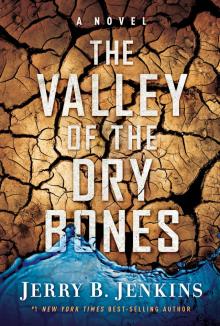 The Valley of Dry Bones
The Valley of Dry Bones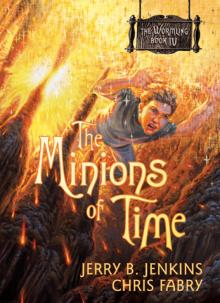 The Minions of Time
The Minions of Time Wild Rescue
Wild Rescue Though None Go with Me
Though None Go with Me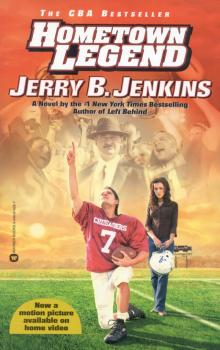 Hometown Legend
Hometown Legend The Breakthrough
The Breakthrough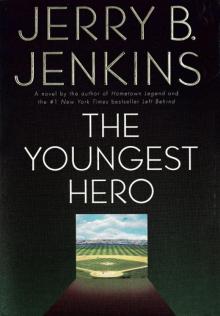 The Youngest Hero
The Youngest Hero Nicolae High
Nicolae High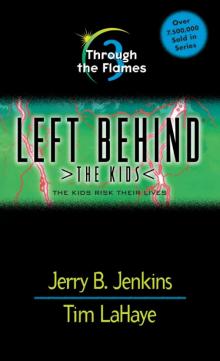 Through the Flames
Through the Flames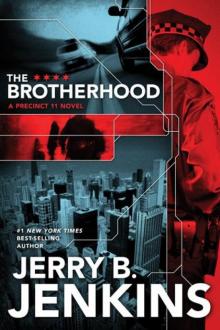 The Brotherhood
The Brotherhood Grave Shadows
Grave Shadows The Changeling
The Changeling Shadowed
Shadowed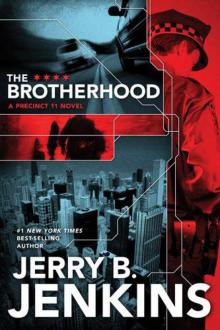 Precinct 11 - 01 - The Brotherhood
Precinct 11 - 01 - The Brotherhood Second Chance
Second Chance Silenced
Silenced The Vanishings
The Vanishings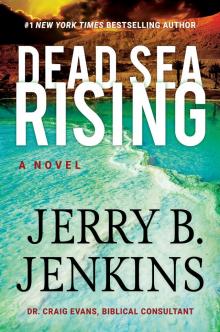 Dead Sea Rising
Dead Sea Rising Soon
Soon The Author's Blood
The Author's Blood The Sword of the Wormling
The Sword of the Wormling Left Behind - The Kids 02 - Second Chance
Left Behind - The Kids 02 - Second Chance Haunted Waters
Haunted Waters The Underground
The Underground Mark's Story
Mark's Story Shaken
Shaken Deceived
Deceived Frantic
Frantic Riven
Riven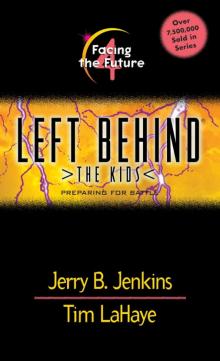 Facing the Future
Facing the Future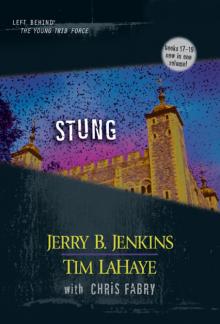 Stung
Stung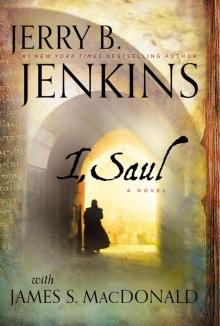 I, Saul
I, Saul Hunted
Hunted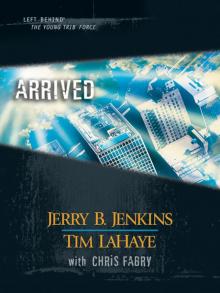 Arrived
Arrived John's Story
John's Story Stolen Secrets
Stolen Secrets